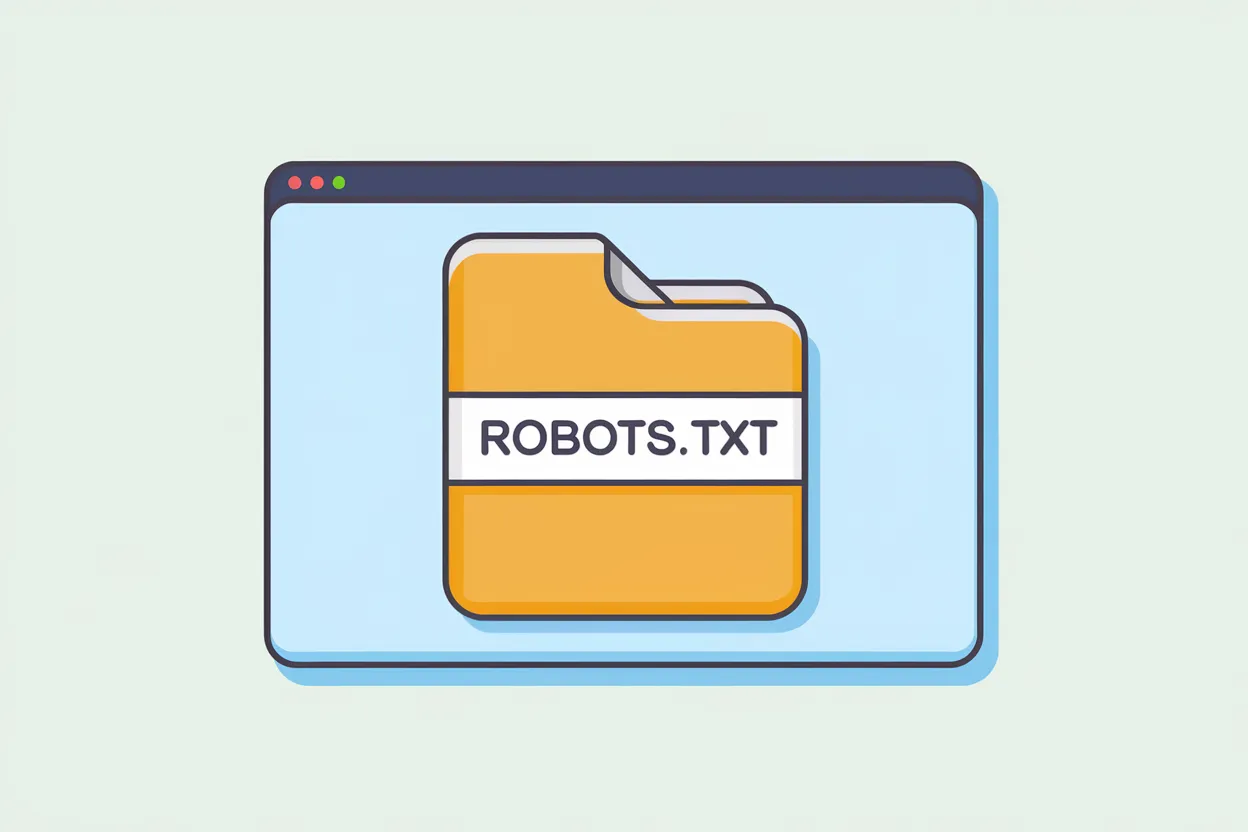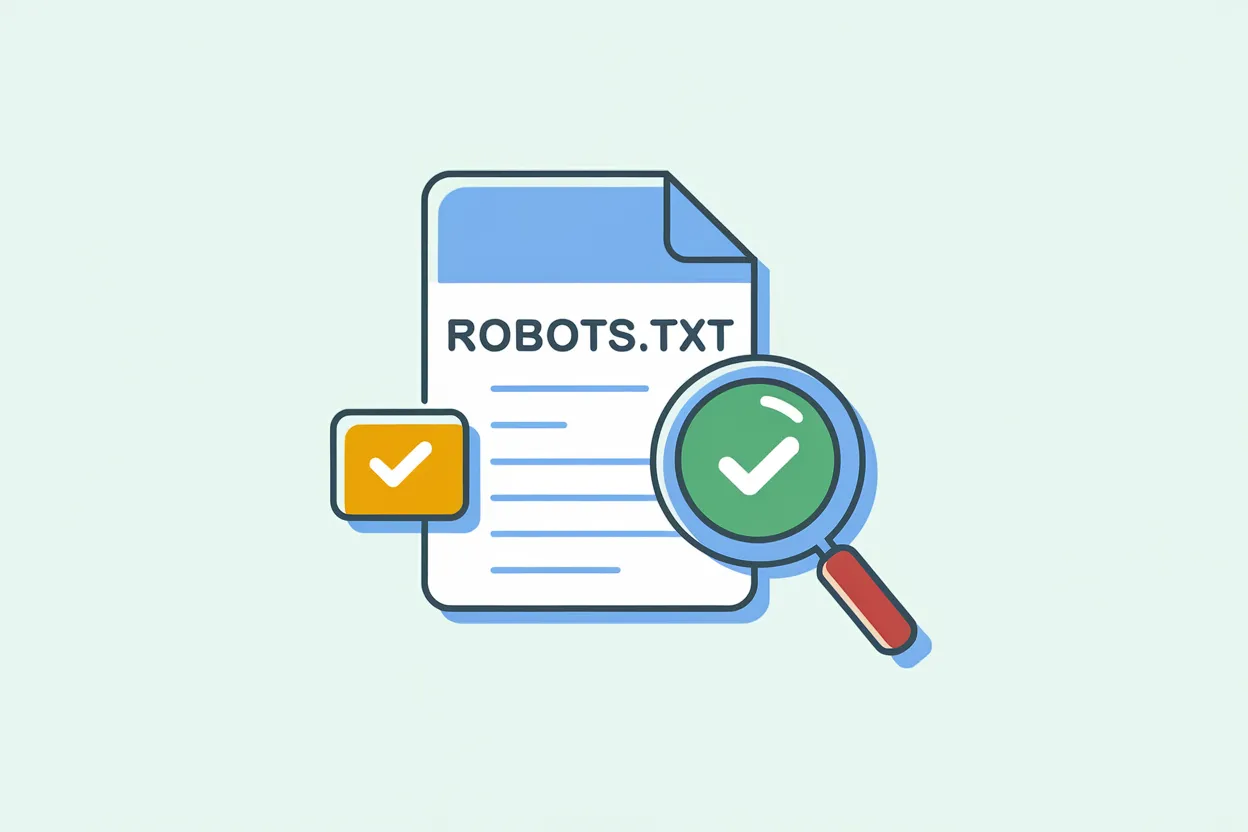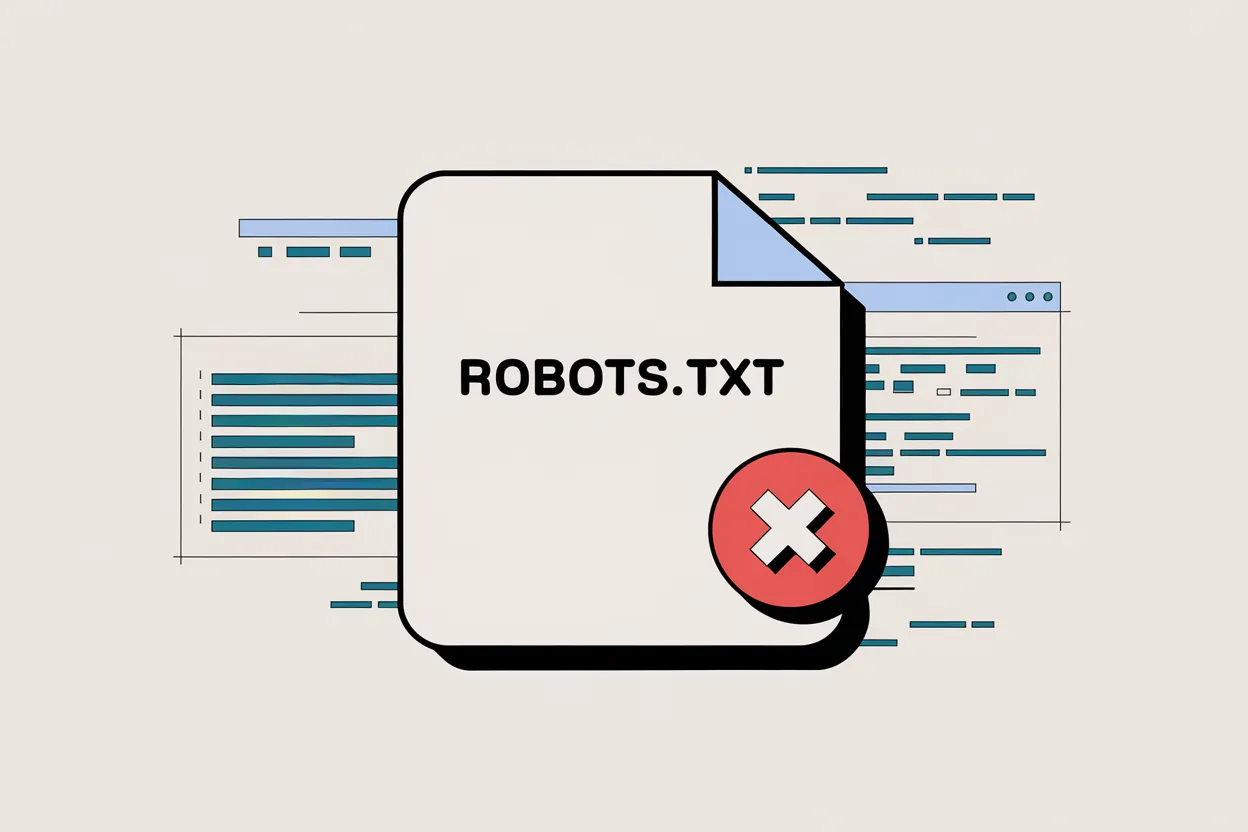Robots.txt Generator - Optimize Your Website's SEO with gpt4o.so
Easily create, audit, and manage your robots.txt files for better search engine performance.

Welcome! Let's generate your robots.txt file quickly and easily.
Generate robots.txt for my new WordPress blog.
Help me create rules for my e-commerce site.
Disallow specific bots from crawling my pages.
Create robots.txt for Joomla-based website.
relatedTools.title

Free AI Writing Assistant by GPT4o.so: Enhance Your Writing Today

SEO Writing AI by GPT4O: Free AI Tool to Boost Your SEO Rankings

Free Copywriting AI by GPT4O - Create High-Converting Content

Free Image to ASCII Converter - gpt4o.so

Free TikTok Comment Generator by GPT4o – Enhance Engagement with Creative Comments

Free Random Bible Verse Generator - gpt4o.so

Free Yes or No Generator by GPT4O - Fast, Fun Decision Making

GPT4o Writing Prompt Generator – Free Custom Writing Prompts
Key Features of gpt4o.so Robots.txt Generator

Generate Custom Robots.txt Files
Our robots.txt generator allows you to create custom robots.txt files tailored to your website's platform (e.g., WordPress, Joomla, custom websites) and type (e.g., blogs, e-commerce, forums). It optimizes crawler access to ensure search engines index the right pages while blocking irrelevant or sensitive content.

Audit Existing Robots.txt Files
We analyze your current robots.txt file for issues such as incorrect or outdated rules, overly permissive or restrictive configurations, and impact on Googlebot or other crawlers. Get detailed recommendations to improve SEO and crawler efficiency.

Check Specific URL Accessibility
Check whether specific URLs are allowed or disallowed by your robots.txt file. We'll explain any restrictions based on user-agent rules, ensuring you understand the impact on search engines like Google.

Custom Rules for User Agents
Block specific user agents, such as GPTBot or other AI crawlers, to control data scraping and manage crawler access effectively. Our tool makes it easy to apply custom rules that meet your unique needs.
How to Use the gpt4o.so Robots.txt Generator
Step 1: Enter Your Website Details
Start by entering your website’s URL and selecting the platform it is built on. You can choose from a variety of website types including blogs, e-commerce sites, and more.
Step 2: Generate or Audit Your Robots.txt
Choose whether you want to generate a new robots.txt file or audit your existing one. Our tool will guide you through each step, ensuring it aligns with SEO best practices.
Step 3: Review and Apply Custom Rules
Review the suggested robots.txt settings, including any recommended custom user-agent rules. You can block specific bots, prevent unwanted crawlers, and ensure your key pages are indexed for search engines.
Who Can Benefit from gpt4o.so Robots.txt Generator
Website Owners and Bloggers
If you own a website or run a blog, managing your robots.txt file ensures search engines can crawl and index your site properly. Our tool makes it easy for non-technical users to optimize their site's interaction with crawlers.
E-commerce Sites
E-commerce sites often have sensitive or irrelevant content that shouldn't be indexed by search engines. Use our robots.txt generator to prevent search engines from crawling checkout pages, account pages, or admin panels.
Web Developers
Web developers can use our tool to generate or audit robots.txt files for clients. It provides a clear, efficient way to optimize crawler behavior without having to manually write complex rules.
SEO Professionals
SEO professionals can use our tool to ensure that robots.txt files are configured correctly for SEO purposes. It helps prevent indexing issues and improves search engine rankings by guiding crawlers to the right pages.
User Feedback for gpt4o.so Robots.txt Generator
This tool made optimizing my robots.txt file incredibly easy! I was able to audit my existing file and add the necessary rules without any hassle. Highly recommend it!
Sarah Jameson
SEO SpecialistAs an e-commerce site owner, it’s crucial to block certain pages from search engines. This generator saved me time and helped me ensure that my product pages are indexed while sensitive pages are blocked.
John Doe
E-commerce ManagerI’ve used many robots.txt generators, but this one is by far the most user-friendly. It’s great for developers and non-developers alike. It’s efficient and easy to use!
Emily White
Web DeveloperI’ve been able to improve SEO for multiple clients by using this tool to optimize robots.txt files. The audit feature is especially useful for identifying and correcting issues.
Mark Liu
Digital Marketing Strategist
Frequently Asked Questions about Robots.txt Generator
How do I create a robot.txt file?
Creating a robots.txt file is a crucial step for managing how search engines interact with your website. A robots.txt file is placed in the root directory of your site, typically at www.yoursite.com/robots.txt. To create a basic file, simply use any text editor to write specific rules that tell search engines which pages to crawl and which ones to avoid. For example, you can disallow crawlers from accessing sensitive information or duplicate content. Once you've written the necessary commands, save the file as 'robots.txt' and upload it to your website's root directory. If you're unsure about the syntax, there are free robots.txt generators available online that can help you quickly create a valid file, ensuring that you avoid common mistakes and make your website more accessible to search engines.
Is robots.txt obsolete?
While the robots.txt file is not obsolete, its role has evolved with the increasing sophistication of search engines and web crawlers. Originally, the file was essential for controlling the crawling behavior of search engines, especially to prevent them from indexing duplicate content or sensitive pages. Today, many web crawlers are more advanced and can detect directives within the code of individual pages (like 'noindex' tags) or use other methods to determine which pages to crawl. However, robots.txt remains an important tool for webmasters to manage crawler access at a broad level. It is still useful for preventing search engines from indexing certain pages, managing crawl budget, and ensuring that non-sensitive content is prioritized in search results.
What is the robots.txt code?
The robots.txt code consists of simple instructions written in plain text that tells web crawlers and bots how to interact with the pages of your website. The two primary directives you will use are 'User-agent' and 'Disallow'. The 'User-agent' defines which web crawlers the rule applies to, while 'Disallow' indicates the paths or pages you want to block from being crawled. For example, if you wanted to block a specific crawler (like Googlebot) from accessing a certain directory, the code would look like this: 'User-agent: Googlebot' and 'Disallow: /private'. If you wanted to allow all bots to access the entire site, you would use: 'User-agent: *' and 'Disallow:'. Advanced uses of the robots.txt file can include 'Allow' directives or even limiting the crawl rate for specific bots.
Why is robots.txt blocked?
A robots.txt file might be blocked for several reasons, most commonly due to misconfiguration or server errors. If the file is not accessible, search engine crawlers will be unable to follow the rules you've set, potentially leading to unintended indexing of sensitive or duplicate content. Sometimes, a robots.txt file may be blocked due to permission issues on the server, where it hasn't been given the correct read-access permissions. Another reason could be incorrect formatting in the robots.txt file, which might make it unreadable to search engine bots. Ensuring that your robots.txt file is correctly placed in your site's root directory and is accessible via a web browser is crucial. Additionally, some web hosts or content management systems may restrict access to robots.txt for security reasons, so it's important to check your server settings if you're facing issues.
What is a robots.txt file?
A robots.txt file is a text file placed on your website that provides instructions to web crawlers on which pages or sections of your site should or should not be crawled and indexed.
How do I know if my robots.txt file needs to be updated?
If you notice issues with search engine indexing, crawling errors, or changes to your website’s structure, it's a good idea to audit your robots.txt file to ensure it’s optimized for SEO.
Can I block specific crawlers using this tool?
Yes, you can block specific crawlers, such as GPTBot, or any user-agent that you don’t want to access your website's content.
Do I need to sign up to use the robots.txt generator?
No, our robots.txt generator is free to use without any sign-up required.
How does the robots.txt generator help with SEO?
By correctly configuring your robots.txt file, you ensure search engines can crawl and index the important pages of your website while avoiding unnecessary crawling of irrelevant or private pages.
Can I customize my robots.txt file?
Absolutely! You can customize your robots.txt file by adding specific rules, blocking user agents, and allowing or disallowing particular URLs and directories.